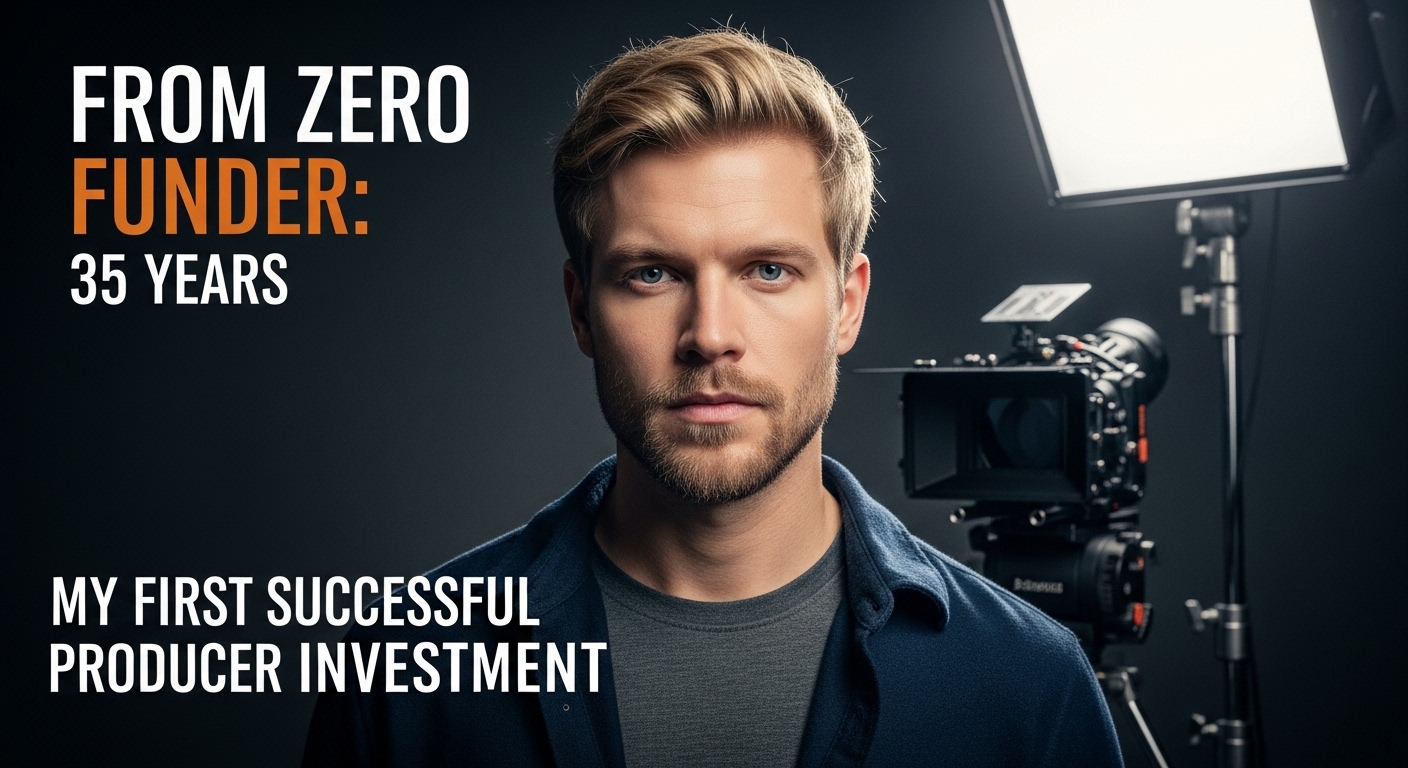As a seasoned filmmaker with over 15 years of experience in the captivating world of documentary filmmaking, I have encountered numerous obstacles and triumphs along the journey to success. Through dedication, passion, and a structured approach, I’ve realized that launching a career in this field is both an art and a science.
In this article, I am thrilled to share with you my insights on the ‘8 Essential Steps to Launch Your Documentary Filmmaking Career’, offering a roadmap designed to empower aspiring filmmakers, film school students, and creative individuals seeking to make their mark in the industry.
Embarking on a documentary filmmaking career requires more than just talent; it demands a strategic plan of action. By following these essential steps meticulously crafted from years of hands-on experience and invaluable lessons learned, you are not only setting yourself up for success but also carving a path towards achieving your filmmaking dreams.
From building a solid foundation rooted in storytelling prowess to mastering technical skills that elevate your projects, each step is pivotal in paving the way for a flourishing career behind the lens. Embrace this structured approach wholeheartedly, and embark on this transformative journey with confidence.
Join me as we delve deeper into the realms of creativity and innovation within documentary filmmaking. Through personal anecdotes, expert advice, and proven strategies gathered from navigating the intricacies of this dynamic industry, you will glean profound insights that transcend mere guidance – they offer a portal into unlocking your full potential as a documentary filmmaker.
Let’s discover together how passion coupled with practicality can lead you to new heights in your cinematic endeavors. The spotlight awaits – are you ready to shine?
Building a Strong Foundation.
As an experienced documentary filmmaker with over 15 years in the industry, I cannot emphasize enough the critical importance of establishing a strong foundation in storytelling.
Crafting compelling narratives is at the heart of documentary filmmaking; it’s about finding the emotional core of your subject matter and translating it effectively to engage and move audiences. By refining your storytelling skills, you can create impactful documentaries that resonate with viewers long after they’ve watched them.
Research plays a pivotal role in shaping the direction of your documentaries. Understanding different styles and techniques allows you to choose the most suitable approach for each project.

Whether it’s observational, participatory, expository, or poetic documentaries, thorough research equips you with the knowledge needed to make informed creative decisions. Personally, delving deep into research has helped me uncover unique angles, untold stories, and innovative ways to present my subjects, leading to more profound connections with my audience.
My journey in documentary filmmaking has been shaped by the solid foundation I laid early on in my career. For instance, when working on a project centered around environmental conservation efforts in a remote community, my storytelling skills enabled me to capture not just the facts but also the essence of hope and resilience within the community members.
This holistic approach stemming from a strong foundation resulted in a documentary that not only raised awareness but also initiated positive change locally and beyond.
Developing Technical Skills.
As a seasoned documentary filmmaker with over 15 years of experience, mastering video editing software and equipment has been fundamental to enhancing the quality of my projects. The technical aspect of filmmaking plays a crucial role in translating your creative vision into a compelling visual narrative.
It is essential to familiarize yourself with industry-standard editing software like Adobe Premiere Pro or Final Cut Pro, as well as understanding how to operate different types of cameras and recording equipment.
- Key Takeaways:
- – By developing your technical skills, you can bring your storytelling to life and engage your audience on a deeper level.
- – Practical experience through hands-on projects allows you to refine your techniques and experiment with various styles to find your unique voice in documentary filmmaking.
To gain proficiency, I recommend immersing yourself in tutorials, online courses, and practice exercises that challenge you to enhance your editing abilities. Additionally, collaborating with other filmmakers or mentors who specialize in different technical aspects can provide valuable insights and expand your skill set.

Remember that technical prowess not only improves the visual appeal of your documentaries but also elevates the overall storytelling impact.
My own journey exemplifies the significance of honing technical skills; through continuous learning and practical application, I have witnessed a marked improvement in the quality and sophistication of my filmmaking projects.
Embrace each opportunity to experiment with new equipment, editing techniques, and visual effects – it is through these experiences that you will carve out a distinctive style that sets your documentaries apart in the competitive film industry.
Networking and Collaboration in Documentary Filmmaking: Building Bridges to Success
Networking is the lifeblood of the film industry, connecting you with like-minded creatives who can become essential collaborators on your documentary projects. Over my 15 years as a filmmaker, I’ve found that forming strong connections with fellow filmmakers, producers, and industry professionals has been pivotal in advancing my career.
These relationships not only provide opportunities for collaboration but also offer a support system of individuals who understand the unique challenges of the filmmaking journey.
Collaborative opportunities in the world of documentary filmmaking are abundant and immensely beneficial. Working with others allows you to combine diverse skill sets and perspectives, resulting in richer storytelling experiences.
By partnering with experts in different areas such as sound design, cinematography, or editing, you can elevate the quality of your projects and expand your creative horizons. One key takeaway is that collaboration not only enhances the final product but also opens doors to new opportunities and exposure within the industry.

In my own career, I’ve experienced firsthand how successful collaborations have propelled my growth as a filmmaker. Whether it was teaming up with talented editors to bring out the emotional core of a story or collaborating with seasoned producers to secure funding for ambitious projects, each partnership has brought unique insights and contributed to the success of my documentaries.
These collaborative efforts have not only enriched my work but also created lasting professional relationships that continue to support and inspire me on this journey.
Networking and collaboration are not just buzzwords in documentary filmmaking; they are essential components that can shape your path to success. As you build bridges with fellow creatives and embrace collaborative opportunities, remember that teamwork not only makes the dream work but also paves the way for a fulfilling and impactful filmmaking career.
Securing Funding and Resources.
As an experienced documentary filmmaker with over 15 years in the industry, securing funding for projects is a critical step in ensuring the success of your vision. One key strategy I have found effective is diversifying funding sources beyond traditional grants.
While grants are valuable, they can be highly competitive and unpredictable. Exploring alternative avenues such as crowdfunding platforms like Kickstarter or Indiegogo can empower you to engage directly with your audience and raise necessary funds while building a community around your work.
Moreover, personal relationships and partnerships have been instrumental in my journey to obtain resources for film production. Cultivating connections with individuals who believe in your vision can lead to sponsorship opportunities or access to equipment and locations at reduced costs.
Collaborating with local businesses, non-profits, or educational institutions not only provides much-needed resources but also enhances the visibility of your work within the community.

In one memorable instance, when faced with a limited budget for a passion project, I organized a small fundraising event that combined a screening of my previous works with a silent auction featuring items donated by local businesses.
The event not only raised substantial funds for the current project but also attracted new supporters who continued to contribute to future endeavors. This creative approach not only secured financial resources but also fostered lasting relationships that strengthened my filmmaking network.
By thinking outside the box and leveraging various funding channels, you can resourcefully finance your documentaries while expanding your reach in the industry.
Promoting Your Work: Harnessing the Power of Social Media and Online Platforms.
As an experienced documentary filmmaker with a passion for storytelling, I cannot emphasize enough the vital role that effective promotion plays in the success of your projects. In today’s digital age, social media and online platforms have become powerful tools in reaching wider audiences and generating buzz around your documentaries.
By strategically utilizing platforms like Instagram, Facebook, Twitter, and YouTube, filmmakers can engage with their audience directly, share behind-the-scenes content, and create anticipation for their upcoming releases.
Key Takeaways:
- – Social media is a valuable tool for engaging with audiences and promoting documentaries.
- – Online platforms offer a cost-effective way to reach a broader viewership.
- – Creating consistent and compelling content is essential for maintaining audience interest.
Crafting captivating trailers and marketing materials is another crucial aspect of promoting your work effectively. A well-made trailer can capture the essence of your documentary in a concise yet compelling manner, enticing viewers to want more.
Additionally, eye-catching posters, press kits, and promotional materials play a significant role in shaping the public perception of your film. Investing time and effort into creating visually appealing assets can make a substantial difference in attracting attention from potential viewers as well as industry professionals.
Key Takeaways:
- – Trailers serve as a teaser for your documentary, sparking curiosity among audiences.
- – High-quality marketing materials help build credibility and generate interest.
- – Consistency in branding across all promotional materials enhances recognition and memorability.
In my own filmmaking journey, I have witnessed firsthand how effective promotion through social media platforms like Instagram Stories or YouTube trailers has led to increased visibility for my documentaries.
By actively engaging with my audience online, sharing sneak peeks of my work-in-progress projects, and responding to feedback from viewers, I have cultivated a loyal following that eagerly anticipates each new release.
Moreover, by collaborating with influencers or partnering with relevant websites for features or reviews, I have been able to amplify the reach of my films beyond traditional channels. Remember, promoting your work is not just about showcasing your talent but also about building meaningful connections with those who appreciate your craft.
Navigating Challenges: Rejections and Setbacks.
As an experienced documentary filmmaker with over 15 years in the industry, I have encountered my fair share of challenges, including rejections and setbacks. One key aspect aspiring filmmakers must understand is that rejection is a common part of this field.
Whether it’s rejection from film festivals, funding bodies, or potential collaborators, it’s crucial not to take these setbacks personally. Instead, view them as opportunities for growth and learning. Remember, even acclaimed filmmakers have faced numerous rejections before finding success.
To navigate rejections and setbacks effectively, developing resilience is essential. It’s important to stay focused on your vision and keep pushing forward despite obstacles. In my early days as a filmmaker, I faced multiple rejections for funding for a passion project I was working on.

Rather than giving up, I revisited my proposal, refined my pitch, and explored alternative funding options. This persistence eventually led to securing the necessary resources and completing the project.
Additionally, surrounding yourself with a supportive network can greatly help when facing challenges in the industry. Seek out mentors, fellow filmmakers, or industry professionals who can provide guidance and encouragement during tough times.
Collaborating with like-minded individuals who understand the struggles you face can offer valuable perspectives and fresh ideas on how to overcome obstacles. Remember, setbacks are not roadblocks but detours that may lead you to unexpected opportunities in your filmmaking journey.
In conclusion, while rejections and setbacks are inevitable in the documentary filmmaking career path, approaching them with resilience and a positive mindset can turn these challenges into stepping stones toward success.
By viewing each setback as a chance to learn and grow creatively, you’ll become better equipped to tackle future obstacles with confidence and determination. Embrace challenges as part of your journey rather than deterrents from reaching your ultimate goals in the industry.
Celebrating Successes: Milestones in Your Filmmaking Journey.
As you embark on your path to becoming a documentary filmmaker, it’s crucial to remember the significance of celebrating every success along the way, no matter how small it may seem. Each milestone achieved, whether it’s completing your first short film or securing funding for a documentary project, is a step forward in your filmmaking journey.
By acknowledging and cherishing these accomplishments, you not only boost your confidence but also fuel your motivation to keep pushing towards greater goals.
Setting goals is key to marking progress and maintaining momentum in your career as a filmmaker. Whether it’s aiming to have a certain number of projects completed by the end of the year or striving to collaborate with renowned professionals in the industry, having clear objectives helps you stay focused and driven.
I recall setting milestones early in my career, from landing my first documentary screening at a local film festival to receiving recognition for my work from esteemed film critics. These moments served as affirmations of my dedication and inspired me to continue reaching for higher achievements.
Sharing personal milestones can be a powerful way to inspire others on their own creative journeys. By recounting stories of perseverance, breakthroughs, and triumphant moments in your filmmaking career, you not only showcase your growth but also offer valuable lessons and encouragement to aspiring filmmakers.
Remember, each step taken towards your dreams is worth celebrating—it’s through these milestones that we shape our narratives as filmmakers and leave indelible marks on the world of storytelling. Keep striving, keep creating, and always cherish the victories that come your way.

I am a highly experienced film and media person who has a great deal to offer to like-minded individuals. Currently working on several exciting projects, I am a film and media practitioner for over a decade. I have achieved a great deal of success in my professional career.





